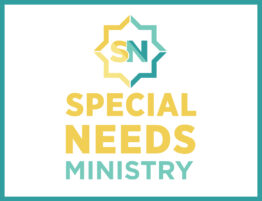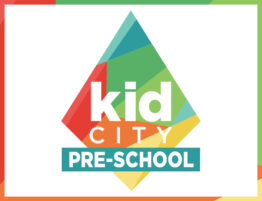Pairing with our “House of Cards” teaching series, here are a few resources to set up meaningful conversations with your kids/students:
Conversations that Matter:
You’ve got some big things to talk about, and most of this isn’t easy. Here’s the thing: If your kids aren’t talking about this stuff, it’s not because they aren’t thinking about it. And if it’s not now, it’s simply not yet. Here’s how to set the stage for some great dialogue.
Calendar it.
There’s no need to make time with your kids feel like a business meeting, but if you don’t actually schedule it, it might never happen. Make an appointment to head out for an ice cream, take a walk, jump in the car for a longer-than-usual drive that meanders through a drive-thru at some point…whatever works for you to make sure these conversations happen. And, whatever you do, don’t cancel!
Create a safe place.
Expect your kids to ask hard questions and have some opinions that might be different from yours. Be thankful that you get to be a guide as you navigate tough topics together, and whatever you do, don’t overreact! Seriously. Don’t.
Embrace “I don’t know.”
Two powerful responses to have in your conversational toolbelt:
- “I don’t know, but that’s a great question. Let’s do a little research.”
- “Tell me more about that.” <——-especially when you’re busy trying not to overreact
Believe it or not, no one expects you to have all the answers. Your job is to keep the conversation going so your kids can own their faith for themselves. You’ve got this, and we’re here to help! Here are some questions on topics like dating, sexuality, and relationships that should set you up for great discussion in every phase of parenting:
Scriptures that connect:
for preschoolers – older elementary kids
- We are to love God and others – Luke 10:27
- We need relationships to help us – Ecclesiastes 4:9-12
- God gives us marriage – Genesis 2:24
for preteens – high schoolers (added to those for younger kids)
- We are called to have close friendships – Proverbs 18:24
- We are to serve others – Philippians 2:3
- Loving others requires devotion and putting them before ourselves – Romans 12:10
- Our closest relationships should be with people who are also trying to follow Christ – 2 Corinthians 6:14-18
for Parents of PRESCHOOLERS
At this age, most kids are just beginning to notice that there are different kinds of relationships. Your primary encouragement will be in modeling healthy relationships and pointing out the right ways to connect with others.
Questions to ask:
- Who are some people you know who are really kind to others?
- Are you a good friend? How do you know?
- What are some of the ways we can love others?
- What are some ways we can show friends we love them? (This is a great time to review appropriate versus inappropriate touch.
for Parents of YOUNG ELEMENTARY KIDS
Kids at this age are beginning to develop ideas for themselves about love, trust, and values. They will be exposed to and notice values that may be different than what you teach in your home or what they will find in scripture. You can encourage your children by pointing them to biblical principles and modeling love and trust for them and for others.
Questions to ask:
- If you’re married, let your kids see pictures from your wedding and ask you questions about it.
- Who is your best friend? How can he/she be sure they are your best friend?
- Is there someone you know who needs a friend?
- What would you do if two of your friends were arguing?
for Parents of PRETEENS
Your 4th or 5th grader will have a deeper understanding about the concepts of dating and marriage. They are also well aware of divorce, same-sex marriage, and other cultural norms that could cause them to have to navigate possible conflict in their friendships. It’s important to have open and honest conversations about your boundaries, views, values, and what we learn from the Bible about marriage and relationships.
Questions to ask:
- Why do you and (name one of their friends) get along? What do you have in common?
- How should we treat people who don’t share the same values we do?
- What are some characteristics or behaviors of someone you’d be willing to marry?
- What does an unhealthy relationship look like?
- If you found yourself in an unhealthy friendship or relationship, what would you do?
for Parents of MIDDLE SCHOOLERS
Your child is beginning to have real relationship struggles and big questions about morals and values. They are also more likely to see your struggles and not know how to process their complexity. Your steadiness and vulnerability will go a long way in modeling healthy relationships, right responses, and moral boundaries. If you haven’t talked about dating or sexuality yet, now’s the time to get those conversations going and set some standards. If that makes you instantly nervous, check out this conversation guide for talking about healthy sexuality.
Questions to ask:
- What does it mean to honor someone? (Bolder: How am I doing at showing honor?)
- What do you think about marriage? Whose marriage looks like it’s made up of two great friends?
- What are some rules you think students should have in their dating relationships?
- Who are some people in your life that you know are for you and would always be willing to answer your questions or help you when you feel confused?
for Parents of HIGH SCHOOLERS
Your emerging adult is now capable of friendships based on more than common interests. He/she is more likely to choose friends (and dating relationships) based on shared values. It’s important to know that your child is shifting into knowing who he is and more of who you are. You will start to see the beginning of what a friendship with your child can look like in the near future. Very important: Take your child’s relationships seriously. Do not downplay their hurts over break-ups or relational conflict. Instead: listen, listen, listen, and let your advice be authentic. As often as you feel it’s appropriate, tell them stories about yourself to coach them through the hard stuff.
Questions to ask:
- What would be the perfect date?
- What is the difference between being alone and feeling lonely? Do you ever feel lonely?
- Is there anything you’d like to ask me about my relationships? (If you’re married, this is a great time to ask what they notice about your relationship with your spouse.)
- If you had to make a list of “rules about dating,” what would make the list?
ADDITIONAL RESOURCES:
Books/Study Guides (for purchase from Amazon)
Christ-Centered Parenting: Gospel Conversations on Complex Cultural Issues
Teaching Your Children Healthy Sexuality: A Biblical Approach to Prepare Them For Life
Conversation Guides
Articles
7 Tips for Talking about Sexuality with Your Children
Helping Your Child Through Their First Broken Heart
Sex and Relationships: Young People with Special Needs



